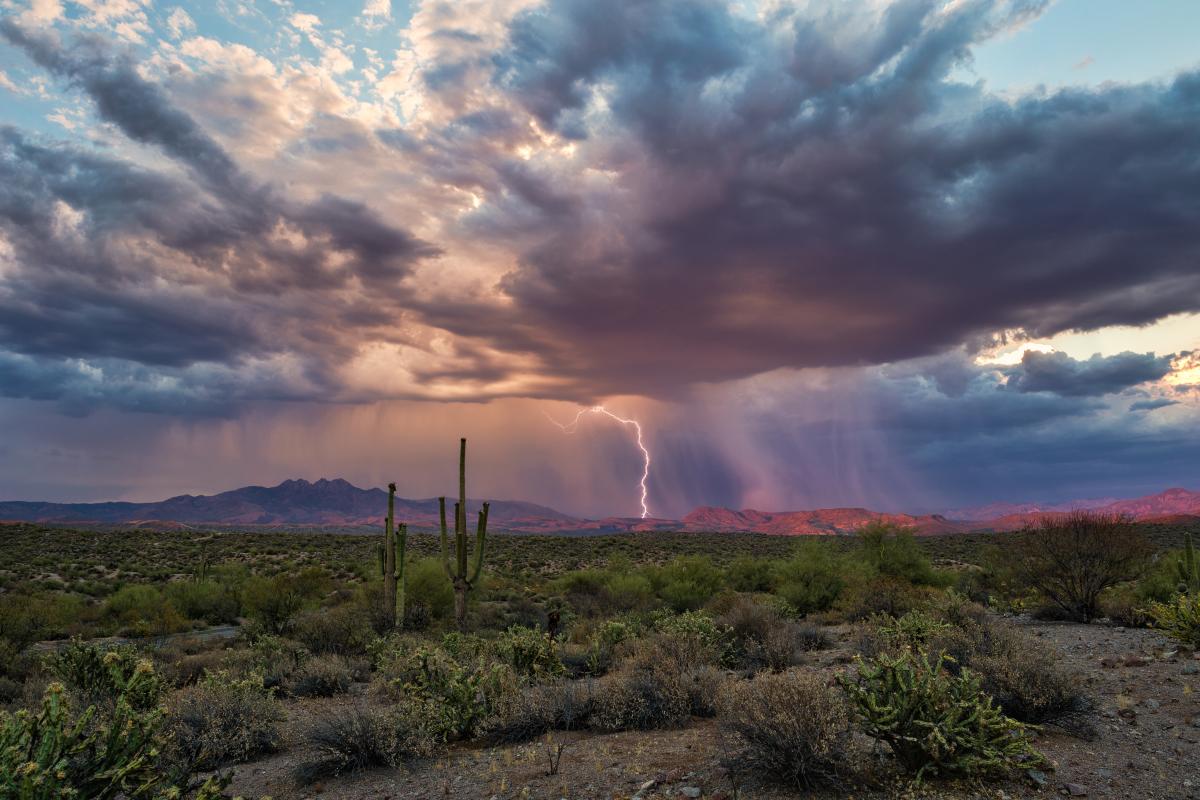
Monsoon Season is Here, and the Potential Damage that Comes with It
Monsoon season officially started on June 15. Known for bringing strong winds and heavy rains to Tucson, Monsoons can cause flash floods that occur within minutes. The dry soil of Southern Arizona is unable to absorb the sudden rainfall, leaving many homes susceptible to flooding.
You can minimize Tucson monsoon water damage by making some tweaks to your property before a monsoon strikes. Here are some helpful tips to keep your property safe in the event of a monsoon!
Clean Your Gutters
Living in a desert climate with little rainfall can make it easy to overlook your clogged gutters. A simple way to protect your home and its foundations during monsoon season is to clear out your gutters and seal any gaps so that they operate properly.
If your home does not have gutters, now is the time to install them. Excess rainfall saturates the dry soil beneath your home and causes it to swell, threatening the foundations of your house. Gutters help to carry excess water away from your home, so be sure that they drain a minimum of 10 feet away from your home.
Prune Branches and Trees
While rain and water damage are a big concern during monsoons, strong winds can also lead to property damage. Be sure to prune and thin trees near your home, especially ones near your roof or windows.
The same goes for any loose debris in your yard. Monsoon winds can get up to 115mph, turning otherwise harmless objects into dangerous projectiles capable of damaging cars, windows, and other property.
Improve Water Drainage
A graded property that slopes away from your home is one of the best ways to reduce flooding and foundation damage, but there are a number of smaller fixes to help manage excess rainwater during a monsoon.
- Add drains to your driveways and patios.
- Consider using permeable pavers. These porous alternatives to traditional paving allow water to soak through them.
- Get creative with your landscaping. Rock rivers and more plants will help guide and absorb some of the rainfall.
Inspect Your Roof
The last thing you want during a monsoon is a leaky roof. Be sure that your roof is ready for increased rainfall by scheduling a roof inspection. If any leaks or cracks are found be sure to repair them, as heavy monsoon rainfall will only make them worse.
In the event that your roof is damaged during a monsoon, be sure to take immediate action.
Don’t wait for a monsoon to strike, take these precautions today to reduce potential future damage. If you are able to stop the source of the flooding, do so quickly — quicker response often means less damage. Move personal belongings to a safe space, and do not stand in water than has been allowed to sit for too long, as interior flood water can quickly turn into mold and affect your health.
- Log in to post comments